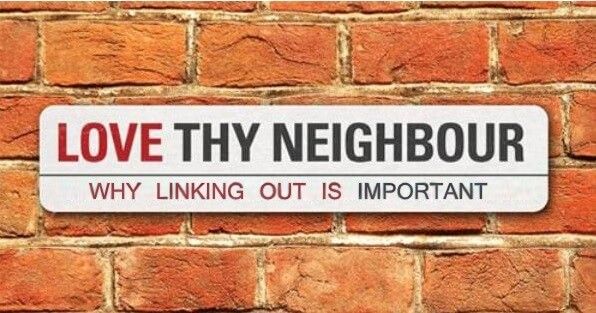I frequently come across websites that refuse to link out. I even more frequently see websites accepting guest posts but only allowing one outbound link in the post. This looks so unnatural, and it is obvious to most seasoned digital marketers that the post is there for one reason – and one reason only – to gain a backlink. If a person can spot this, chances are that Google can too. The problem with these types of posts is that they have ruined the reputation of guest posting. Hopefully, this article helps you understand why I think linking out is important.

You should set yourself high standards when writing guest posts for other websites but also ensure you have exceptional standards when accepting them. Neil Patel covers the topic very well. If you do guest blog as part of your link building strategy (and please ensure you do it the right way and for the right reasons!), try to ensure that links from guest posts don’t become a huge part of your link profile. There are lots of ways of building links and don’t forget to try your hand actually trying to earn links.
Linking out is important
Linking out in a post is one way (out of many) to make posts look much more thought-out and relevant. Websites are slowly grasping the advantages of linking out, but it doesn’t seem to be happening quickly enough. The probability is, no matter what you are writing about; others will also be writing about it. Some might agree with your points, some might disagree. Link to them never the less. Visitors love making their own minds up so give them both sides of the story.
I’m going to try and tackle the issue and provide a few good reasons why you should link out to authoritative websites more.
Adds trust
If you link out in a post to real authoritative websites it really adds trust to your argument. It backs up your point and adds references to help prove that you know your stuff. Also try to keep an eye out for similar posts in the media or within news corporations. For example; if the BBC wrote a post on their site about the value of Google, you could write your own article and link to the BBC page in your content but elaborate and go much deeper than the BBC might.
Looks more natural
Imagine a guest post on a blog about DIY. It will probably be 500 words long. Chances are it only has one link in the post (probably exact match keyword anchor text too) this makes it very easy to conclude that this post adds little value to the blog but also the visitors. It is only there to gain a backlink. Now flip the coin. Imagine a guest post on a website that links out to 8 (random number there!) other websites within the post. Not only does this make it harder for a visitor to understand exactly why this post exists on the DIY blog, but it also makes the post look well researched. Then imagine that 7 of these links all go to relevant high authority posts, and the last goes to your site. This makes the post slightly more natural and makes it harder for Google to determine that the purpose of the post was written just for a link.
Build Relationships
After the post goes live, get in touch with the webmaster of the site you linked to within the post – chances are they will love you for it! You never know when you can pull in a favour with them – or even maybe get some sort of opportunity on their website. The bigger your outreach, the more people notice you and the easier you will find it to build your reputation.
Make you look more of an expert
If you link out in posts, it makes the content look well thought-out. To the average visitor, they will assume that you have done your homework (which hopefully you actually have) and are much more likely to read the post and click your link. A post without links can sometimes look like very little effort has been made to research the topic fully. Another thing to try is to use your bio to help explain why you are an expert in this particular field with a link out, for example, to where you were educated instead of linking to your own website in the bio.
Helps build links to the post
The more you link out in a post (obviously within reason), the bigger the potential target audience and readership. Once you have told somebody you are linking to them, they are more inclined to take notice of you and potentially share it amongst their followers. The more people read the post, the more likely somebody will link to it. The more links you get to the post, the better the link to your website will be.
Keeps visitors on the site longer
Lots of research has gone into behaviour of website visitors. The general consensus is that if somebody is reading a post and wants to read the page which you are linking to, there is a good chance that they will open it in a new tab and come back to your post. I usually like to make links open in a new tab for this reason. There is a good discussion in the comments section of this page about exactly the same topic. More and more, user experience metrics seem to be making their way into ranking factors so keeping visitors on your site will be sure to help, as Cyrus Shepard points out.






